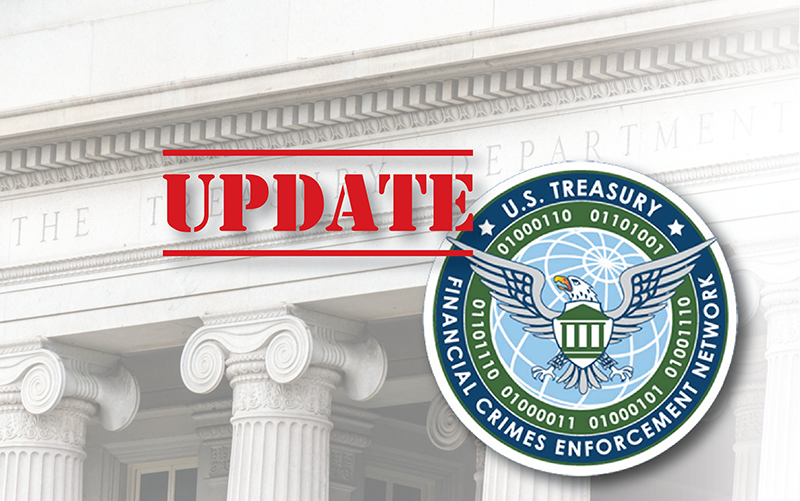Banking and Business Monthly – June 2023
Strengthening Your Business through Trade Secret Protection

On May 30th, 2023, Abbott Laboratories filed a complaint in federal court against a former employee for allegedly stealing trade secrets related to the formulations of its nutritional products before leaving the company to take a new job. Abbott is accusing the former employee of secretly downloading “thousands” of confidential documents to USB drives before resigning to take a new job at a competitor. According to the complaint, forensic analysis of the USB drives showed that the former employee copied entire directories of Abbott’s proprietary information three days before formally accepting the competitor’s job offer. Abbott is alleging that these actions violated the conditions of the applicable employment agreement as well as the Defend Trade Secrets Act of 2016 (DTSA), 18 USC §1836 et seq., and the Illinois Trade Secrets Act (ITSA), 765 ILCS 1065/1 et seq. Below is an overview of both of these Acts, focusing on what is considered a trade secret, and the available remedies each Act provides to companies.
Defend Trade Secrets Act of 2016
This federal law gives companies a legal avenue to protect their trade secrets. Prior to its enactment, companies were primarily reliant on state law to defend trade secrets. The DTSA provides a uniform statute that companies can use to seek relief for trade secret misappropriation in federal court, rather than navigating the various state laws.
The DTSA provides a fairly broad definition of what is considered a trade secret, picking up all forms and types of financial, business, scientific, technical, economic, or engineering information, including patterns, plans, compilations, formulas, designs, etc., whether tangible or intangible, and whether or how stored, compiled or memorialized physically, electronically, graphically, photographically, or in writing, if the information satisfies both of the following conditions:
- The owner thereof has taken reasonable measures to keep such information secret; and
- The information derives independent economic value, actual or potential, from not being generally known to, and not being readily ascertainable through proper means by, another person who can obtain economic value from the disclosure or use of the information.
The DTSA grants the owner of a trade secret the right to sue in federal court when their trade secrets are misappropriated. Available remedies include:
- Injunctive Relief: A court can issue an order preventing the accused party from continuing to use or disclose the trade secret.
- Damages: A company could be awarded damages for actual loss caused by the misappropriation and for any unjust enrichment that is not addressed in damages for actual loss. In the case of willful and malicious misappropriation, the court can award exemplary damages up to twice the amount of the actual damages.
- Attorney’s Fees: In certain cases, a prevailing party may recover attorney’s fees.
- Seizure: In extraordinary circumstances, the Act allows for the seizure of property to prevent the propagation or dissemination of the trade secret.
Illinois Trade Secrets Act
Much like the DTSA at the federal level, the ITSA provides remedies for businesses whose trade secrets are misappropriated. It allows businesses to sue for damages in state court, and while similar to the federal law in many ways, there are a few differences.
Under the ITSA, a trade secret is defined as information, including but not limited to technical or non-technical data, a formula, pattern, compilation, program, device, method, technique, drawing, process, financial data, or list of actual or potential customers or suppliers that both:
- Derives economic value from not being generally known to, and not being readily ascertainable by proper means by, or other persons who can obtain economic value from its disclosure or use; and
- Is the subject of efforts that are reasonable under the circumstances to maintain its secrecy.
The available remedies under the ITSA are largely similar to the DTSA, with a key distinction being that attorney’s fees can be awarded if (a) a claim of misappropriation is made in bad faith, (b) a motion to terminate an injunction is made or resisted in bad faith, or (c) willful and malicious misappropriation exists.
Implications for Companies
Trade secrets may be a crucial aspect of a company’s competitive advantage and can include anything from manufacturing processes, formulas, and customer lists, to business strategies and practices. The importance of protecting trade secrets is highlighted in a few ways:
- Competitive Advantage: Trade secrets give companies a competitive edge in the market. They can be anything that adds value to the company and is kept confidential, such as formulas or algorithms. If this information were to be leaked, it could erode a company’s competitive position.
- Financial Value: Trade secrets often have significant financial value. They represent a substantial investment in terms of time, effort, and financial resources. The loss of a trade secret can result in financial damage, both in terms of lost revenue and the cost to develop new proprietary information.
- Investor Attraction: A company with well-protected trade secrets is often more attractive to investors. It shows that the company understands the value of its intellectual property and takes appropriate measures to protect it.
- Legal Recourse: Proper protection of trade secrets enables companies to take legal action against those who misappropriate them. Laws such as the DTSA and ITSA give companies ways to seek damages and prevent further misuse of their trade secrets.
- Preventing Unfair Competition: Protecting trade secrets deters competitors from gaining an unfair advantage by using stolen or improperly obtained proprietary information. This promotes a more level playing field and encourages competition based on innovation and efficiency rather than espionage.
In sum, a company’s trade secrets are valuable assets that can provide a crucial competitive edge. Protecting these secrets from misappropriation or leaks is a complex task, and requires a multi-faceted approach. It requires not only an understanding of legal mechanisms such as the DTSA at the federal level and state-specific laws like the ITSA, but also an effective strategy to ensure their confidentiality and to limit access to them. The importance of protecting trade secrets in the modern business environment is crucial, and companies need to understand the legal remedies provided to help in guarding them.
Thanks to our law clerk Nathan Toy for his assistance with this month’s article. For further inquiries or questions, please contact me at smigala@lavellelaw.com or (847) 705-7555.
More News & Resources
Lavelle Law News and Events










STAY UP TO DATE
Subscribe to our newsletter
Lavelle Law, Ltd. | All Rights Reserved |
Created by Olive + Ash.
Managed by Olive Street Design.


